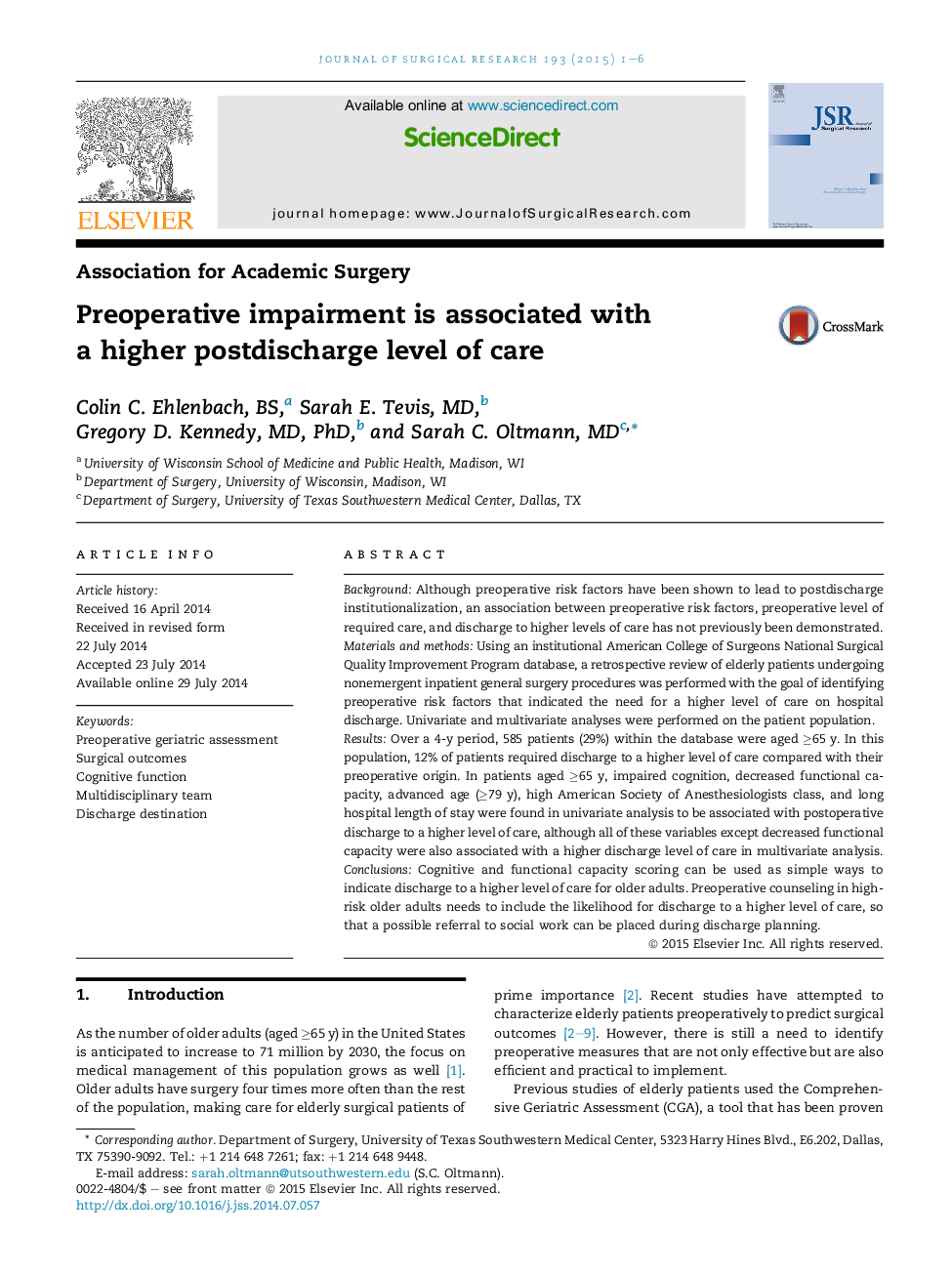| Article ID | Journal | Published Year | Pages | File Type |
|---|---|---|---|---|
| 6253649 | Journal of Surgical Research | 2015 | 6 Pages |
BackgroundAlthough preoperative risk factors have been shown to lead to postdischarge institutionalization, an association between preoperative risk factors, preoperative level of required care, and discharge to higher levels of care has not previously been demonstrated.Materials and methodsUsing an institutional American College of Surgeons National Surgical Quality Improvement Program database, a retrospective review of elderly patients undergoing nonemergent inpatient general surgery procedures was performed with the goal of identifying preoperative risk factors that indicated the need for a higher level of care on hospital discharge. Univariate and multivariate analyses were performed on the patient population.ResultsOver a 4-y period, 585 patients (29%) within the database were aged â¥65 y. In this population, 12% of patients required discharge to a higher level of care compared with their preoperative origin. In patients aged â¥65 y, impaired cognition, decreased functional capacity, advanced age (â¥79 y), high American Society of Anesthesiologists class, and long hospital length of stay were found in univariate analysis to be associated with postoperative discharge to a higher level of care, although all of these variables except decreased functional capacity were also associated with a higher discharge level of care in multivariate analysis.ConclusionsCognitive and functional capacity scoring can be used as simple ways to indicate discharge to a higher level of care for older adults. Preoperative counseling in high-risk older adults needs to include the likelihood for discharge to a higher level of care, so that a possible referral to social work can be placed during discharge planning.
